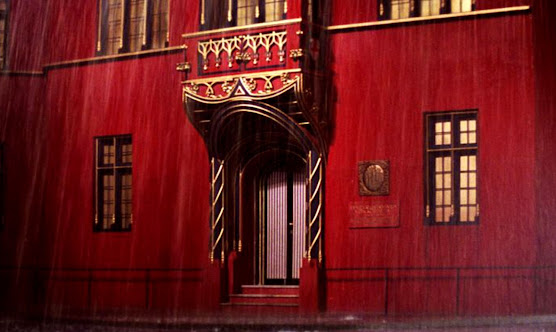A mellow noir journey through Paris, France. Jef Costello is eternally alone in a city of 10 million people. Every shot showcases this idea so brilliantly by making clever use of a variety of empty spaces -- walls, buildings, streets. His apartment is significant to this. Even in crowded scenes, the direction is so intimately narrowing on him. His silhouetted, enigmatic, dark charm is so infectious to watch. His eyes reveal secrets buried deep within the character. "What kind of man are you?" Perhaps the question that leads to his actions at the end; an endless pondering of what led him here and how he has affected those he touches. The solitude is truly his to bear.
Despite the lack of words he utters, his stoic resilience to everything around him burdens a sadness and a heaviness on our anti-hero. He permanently changes his discourse as he takes out his final hit for which he got paid four million -- himself. A man who has never allowed anyone to get too close to him unveils a brilliant show of self-awareness. He knows what he does and its potential consequences. He keeps his distance.
The calculatedness, cleverness, and coolness of the writing are purposefully perfect for the effortless atmosphere the film strives for. It's like a classic jazz song. Jef doesn't speak much, but when he does, every classic crime dialogue nods in synchronous approval.

I love films where the setting is a character on its own. And this neo-noir does it to perfection. The futuristic club 'Martey's,' especially, is so well designed that it sparklingly complements the chase of the film, the beginning of the plot, and its final demise. The interior is a mesmerizing view; it adds so much personality and ambiance but also serves as a detachment from Costello himself. It's a striking contrast to his quaint, muted apartment that may be as lifeless as he looks. But I don't blame him, it's a tough world. The club specifically resonates a three-dimensional piece of art with a warning sign of "Do Not Touch." And I mean, I would be afraid to anyway. The elements of futurism are recurring and are such an interesting and purposeful choice. I'm simply enamored by it. The lounge of a space-like atmosphere inhabits a silken, sulking mystery that breeds questions and facilitates this lonesome tragedy.
Eventually, even the technology becomes a character during Costello's intense and intricate chase (which is one of the best chases of all time). It feels rather intentional as the camera pans from the dozen tails to the retro-GPS tracking device to an increasingly paranoid Jef Costello who is trying to identify who is who. This portrayal feels so eccentric and purpose-rendered for plot, drama, and thrill as it notably does not have any accompanying music, just dread.
Such a slick film, exploring the many degrees of the great solitude that our Samourai has to bear, and the incredible disdain it sprinkles thoroughly around the movie. I love colours so much, but I am still floored at muted colours being used so distinctly and meaningfully and at the existence of saturation in this. It is stylistically whole. This has got to be a paragon of how to not make a film look like a desaturated bore. You can still communicate themes of doom, loneliness, and sadness using your brown, grey, black, and white and combining them with design, shades, and a whole lotta expression. Through marvelous scenic and character direction, wonderfully reserved and mystery-driven acting, and the spectacular cinematography of light and shadows, this film not only looks so breathtaking but is narratively alluring.





No comments:
Post a Comment